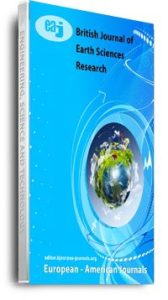The geotechnical properties of soil samples obtained from eight (8) boreholes from some parts of Bayelsa State were determined to assess their suitability as foundation materials. The geotechnical characteristics of the soils were determined from the laboratory and field works. The Atterberg limit results reveal that the liquid limit ranges from 46.5% to 98.3%, the plastic limit ranges from 23.5% to 56.3% while the plasticity Index values range from 17.1% to 51.3%. The clays are highly plastic (CH) in the USCS designation. The natural moisture content ranges from 35.9% to 91.3%, the moisture content is relatively high, this could be attributed to the wet season period of sampling. The particle size analysis disclosed that the cohesionless samples are predominantly fine to medium and medium dense sands. The triaxial test results shows that values of Cohesion (C) ranges between 16 – 40KN/m2 and the friction angle (ϕ) ranges between 3 – 6o. The result of the undrained shear strength of the clay ranges between 20Kpa and 24Kpa. The coefficient of consolidation (Cv) of the clay soil samples varies between 1.13 m2/yr and 2.89 m2/yr, the coefficient of volume compressibility, (Mv) for these same materials varies between 0.215 m2/MN and 6.338 m2/MN. Generally, indicating clay layers of high to very high compressibility. The calculated values for ultimate bearing capacity (qu) and allowable bearing capacity (qa) varies between 100.29KN/m2 to 151.49 KN/m2 and 33.42 KN/m2 to 50.50 KN/m2 respectively. The analyses showed that the values of ultimate bearing capacity increases with depth. The calculated settlement ranges between 69mm to 653mm with the thickness of clay of 7.5m and 30.0m respectively. Raft foundation is best suited for these weak, soft foundation materials for light structural loads but for heavy structural load, a pile foundation is recommended.
Keywords: Atterberg limit, coefficient of consolidation, coefficient of volume compressibility, cohesion, friction angle, shear strength

